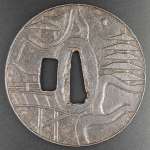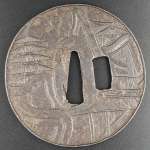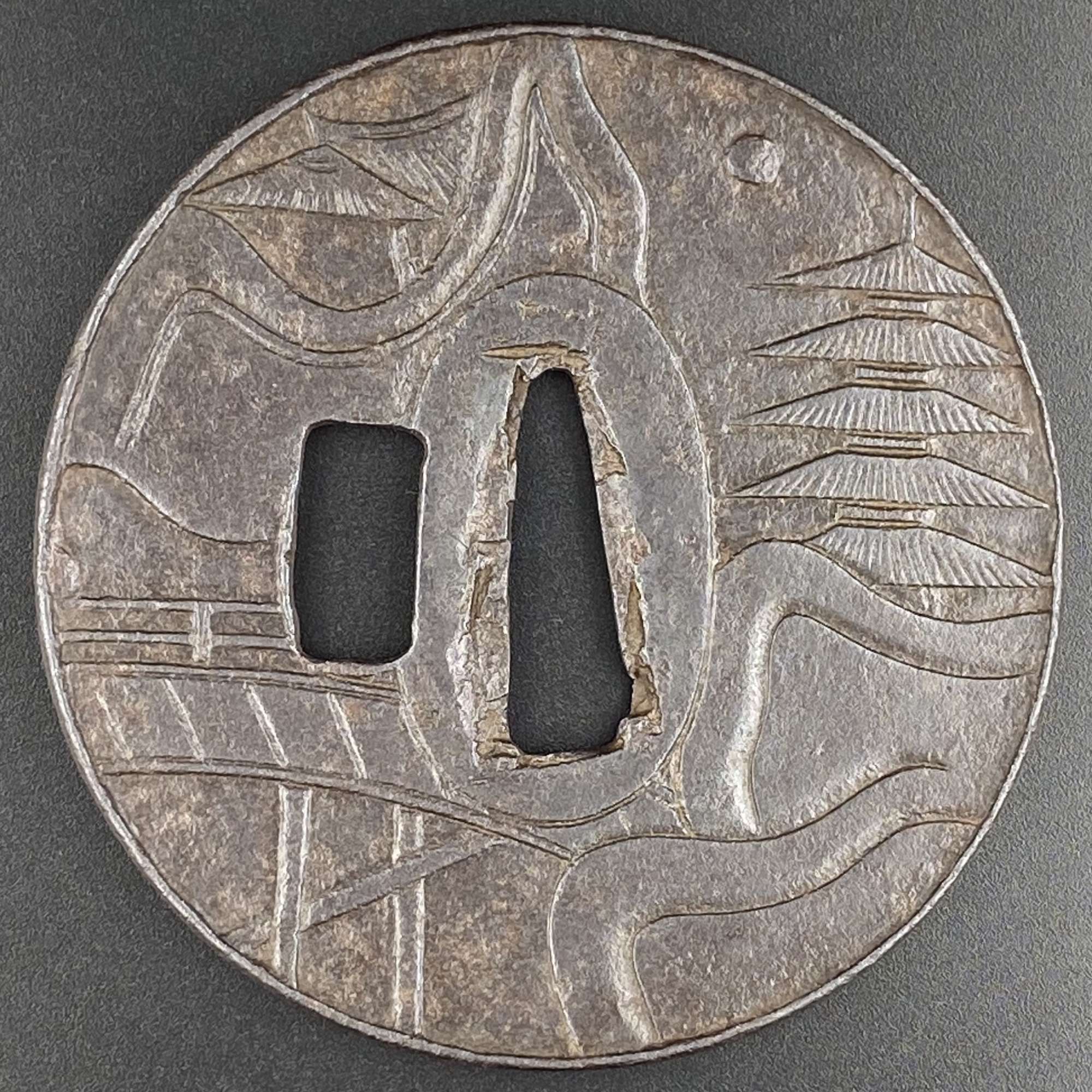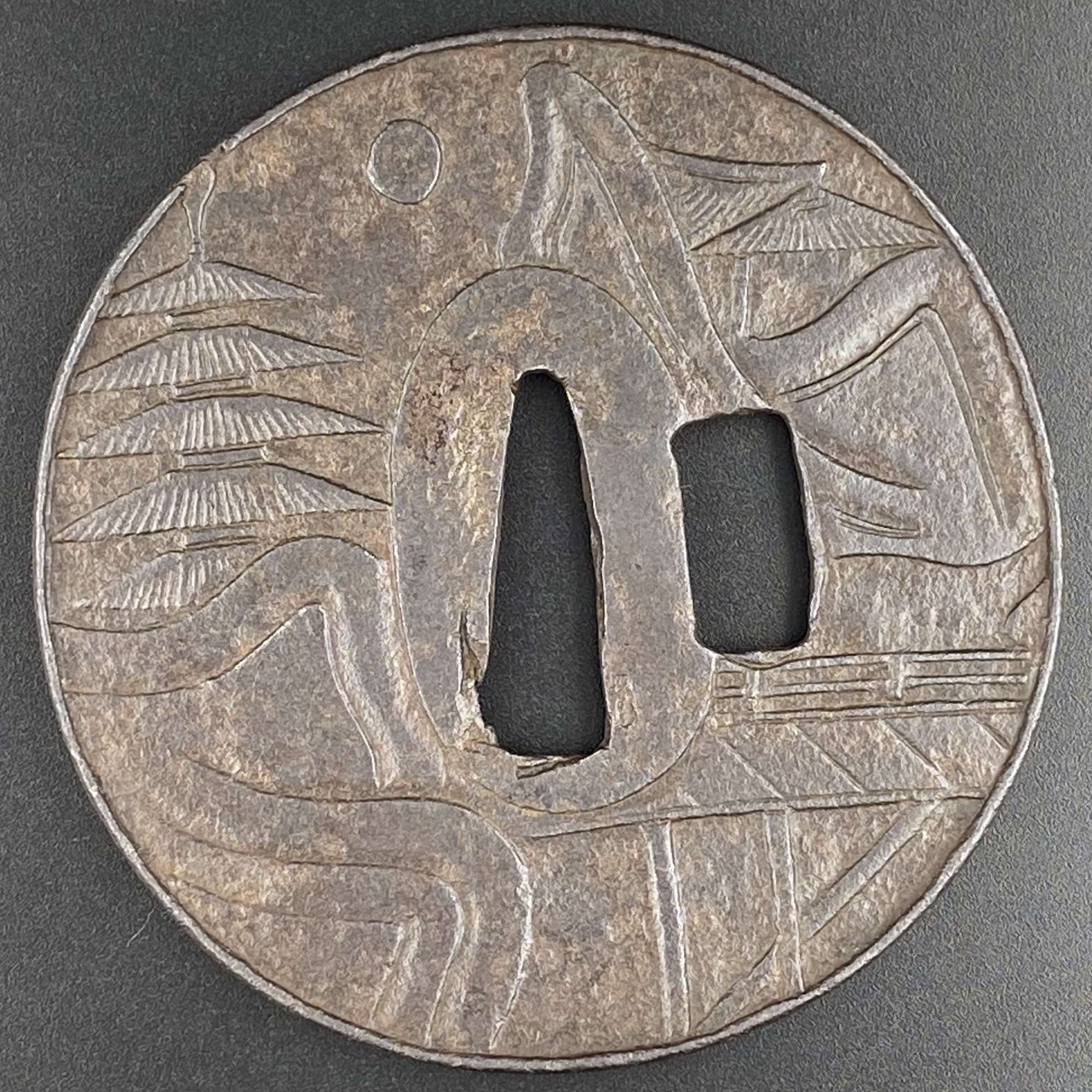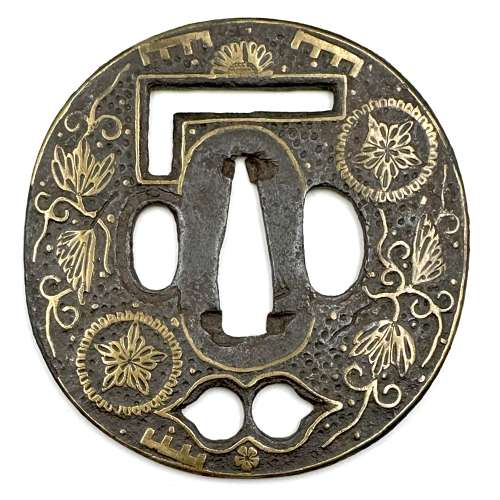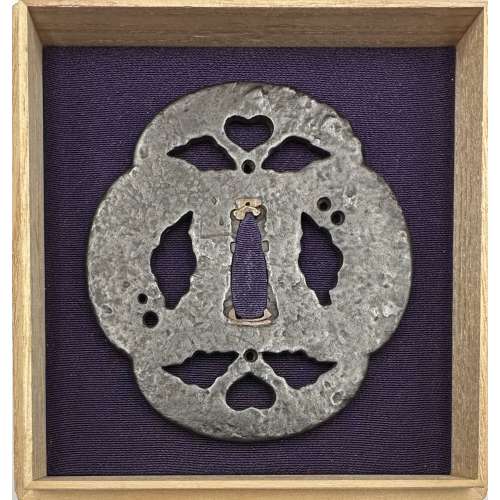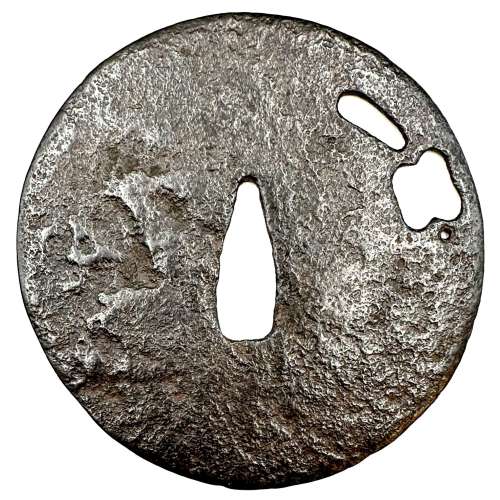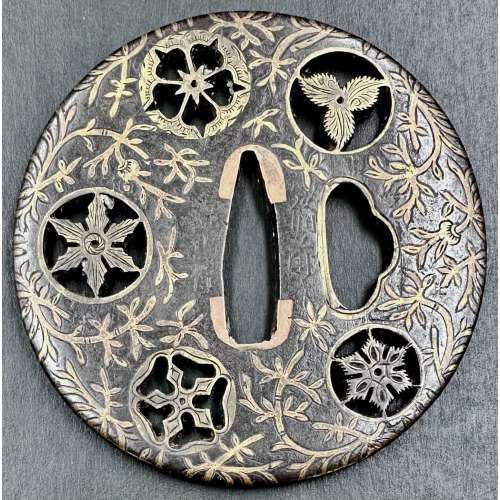The thin iron plate of round form and black colour carved in sukidashi-bori with the design of rocks, waves, bridge, mountain pavilion and 5-storey pagoda under the moon, on both sides, alluding to Todai-ji temple in Nara. Slightly rounded rectangular hitsu-ana probably pierced later. Very narrow raised rim as usual in katsushi tsuba. In a modern wooden box.
Late Muromachi period, 16th century.
Dimensions: 81.1 x 79.5 x 3. mm (seppa-dai), 2.2 mm (base plate), 4.4. (rim).
Reference: “Art of the Samurai” on page 232, №140: ”Kamakura tsuba with Sangatsu-do tower and bridge. Muromachi period, 16th century. 83 mm x 80 mm. Unsigned. Tokyo National Museum. The mountain pavilion and bridge carved in sunken relief on the iron tsuba – both part of Tōdai-ji, a temple in Nara – are detailed in fine kebori (line) engraving. As a result of the chiselling used to create the relief, the ground of the piece is relatively thin”. Also page 41 in Tsuba Kanshoki. Kazutaro Torogoye, 1975 [LIB-1480.2018].
This tsuba is very much similar to TSU-0384.


